In recent years, I have developed a taste for and enjoy taking photographs with film cameras that are helping me in getting a decent image, with the minimal effort from my part; I am talking here about the AF feature (my eyes are not what they used to be), internal light meter (getting a bit lazy, comes with the age I guess), film winder lever instead of the classic knob (or even better, auto winding), various focal options, better glass and high shutter speeds many of the good lenses are providing, AE lock, and so forth. You know what I am speaking of here. All these and more are to be found on our film cameras of a newer production (usually post 80’s).
But every now and then I feel like I’m cheating, sort of. I cannot put this feeling in proper words, it’s more like a inner thought which, at times, says: “well, of course you take decent images, the camera and film are doing most of the work; what are YOU doing to get a good photograph?”. Indeed, what do I personally add to the combination of camera, film and processing, in order to obtain something half decent? Just the scene, the framing of it. What else? This is all there is, regarding my personal input? Surely there has to be more than that.
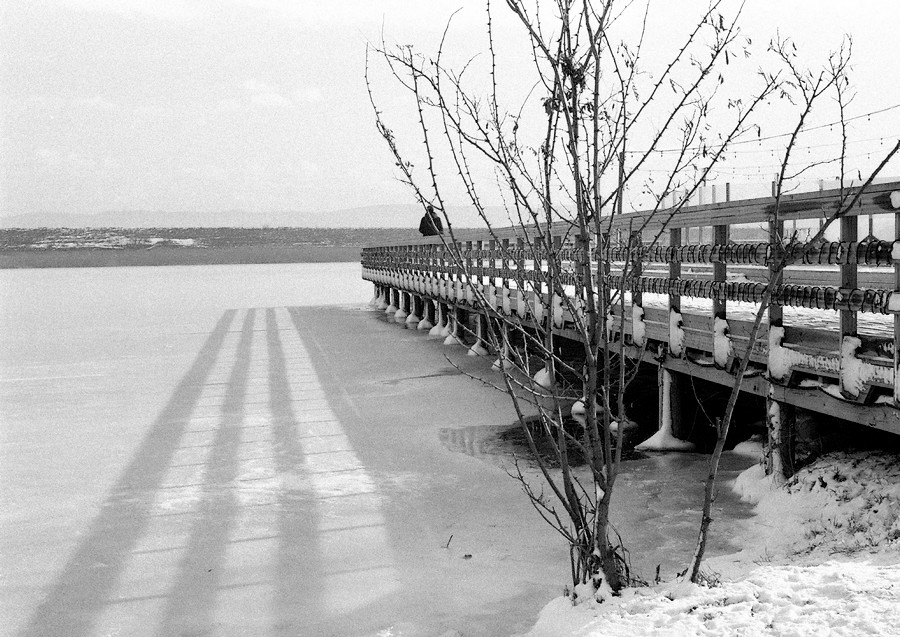
And to be fair, there are times when one feels that one has stopped thinking on the entire process of taking photographs, because one is just simply loading a modern film roll in a, say, Nikon F4 and shooting away, only composing and whatnot. Obviously, I am grossly simplifying; there is much more than that when it comes to film photography and using a film camera (whatever the type or model), but you probably understand the idea expressed here. I just feel there is something which makes me less contributory to the entire process and results thereof, good or bad. I feel like I am cheating my role into the final result, letting the AF this or AE that function of the camera doing all the work.
On one hand it is so: no matter what we do, no matter where we aim at or shoot with, it always depend on our own skills to tell the camera what we want and how we want it. Some cameras understand our commands better than others, but they all do what we tell them to do. And most of the times, results are illustrative of our understanding of what the camera needs to be told. It is something like this: we want an apple, the brain tells the hand to pick it, and bring it to our mouth. I guess the camera is the hand here, with our eye and knowledge being the command of the brain on what we want. The taste of the apple is the result of our endeavour, as is the photograph resulted from the action of eye/camera/frame resulted.
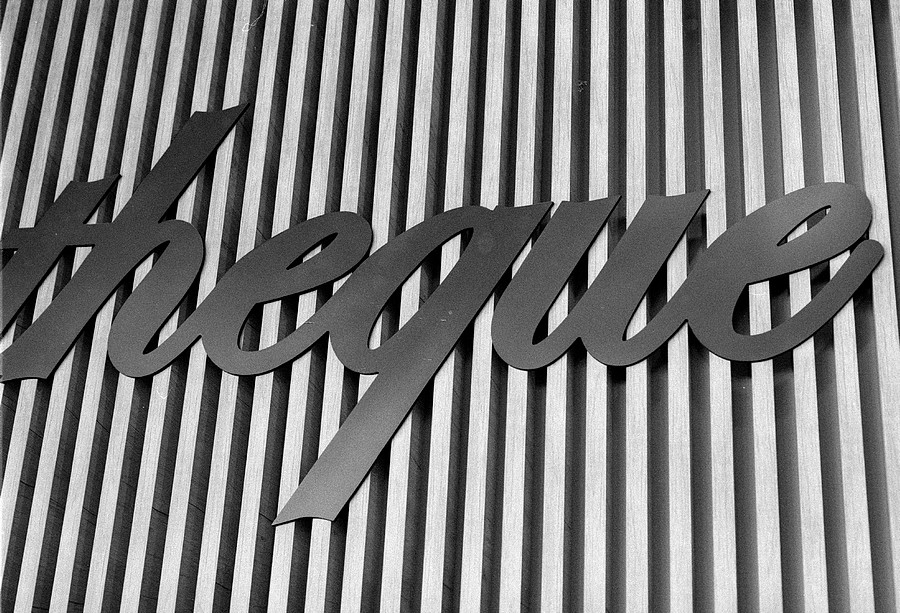
On the other hand though, it becomes pretty clear to me that my brain gets lazy if I subject it continuously to easier targets. Not enough challenge occurs, I’d say. Take the AF function in a such camera: it was meant to make our lives easier, and indeed, it does that. But in doing so, we tend to forget the zone or distance focusing (for instance), because well, we’re not using it anymore. Such is the nature of human functions, and it’s only natural to forget stuff which we do not practice on a regular basis. Sunny 16 rule? Best there is, time and again providing consistent results, if you learn it and applied properly; however, because of the internal metering of our cameras, or phone apps, or handhelds, we are less attentive to the basics that form the film photography.
And so we come to the crux of the matter: do we need to get back to basics in order to remind ourselves the simple rules of film photography? Perhaps in certain cases, for certain people, this might be a solution. You know, those rules, primary rules from the film photography early days of yore: the simple joy of putting your brain in motion, learn and understand things, look at and see/understand the light, shadows, tones, imagine how the frame will look like once processed, take into the consideration the film sensitivity, all converging to that “moment decisif”. And do all these by working your brain and arse off, not by employing the use of a silicon chip to do it for you.
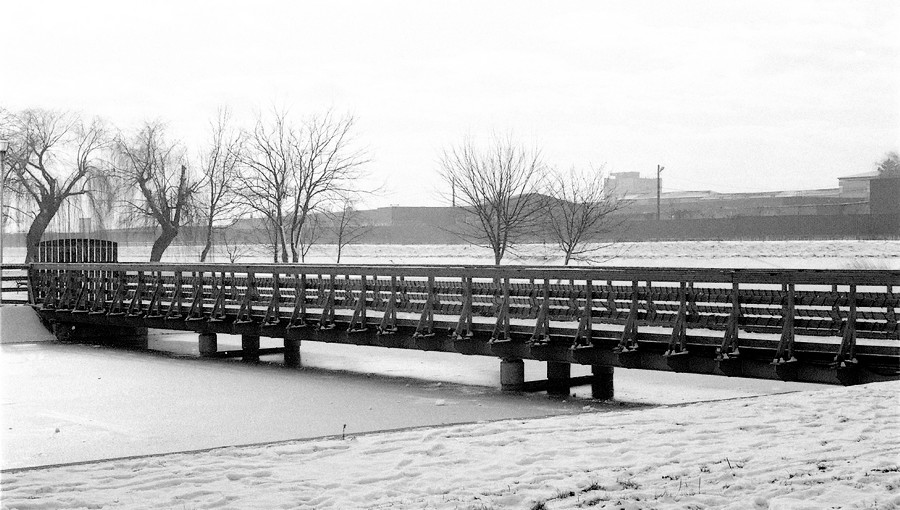
Do we need to take a step back in film photography? I believe some of us, like me, should. It would be a refreshing journey, one that will put us back on the track we started long ago. Take a simple camera, load a simple/no fancy film, no light meter, and go out. Try to remember the Sunny 16, try to see a scene, not just look at it. Weigh in the tones, try to figure the light, the shadows, the scene. Be the light, be the shutter, be the film. Look, see and understand This could be similar to undergoing a serious diet; you’ll go back to your usual equipment feeling recharged.
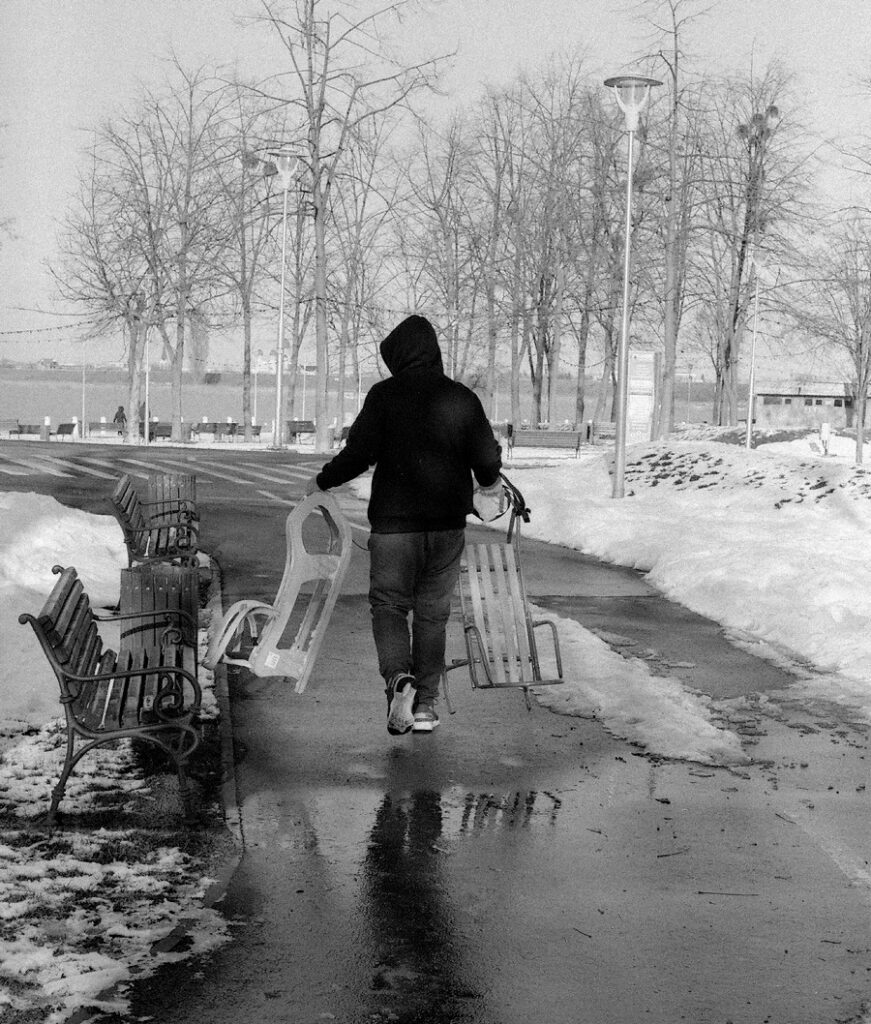
My rant shall stop here; all of the above and much more was already said, by some of those who understand (film) photography better than I do. I just wanted to throw in my two cents, for what is worth, because this is how I feel these days. Btw, the images are Agfa APX 400 shot and processed at 800, Nikon F4. I just chose some recent random ones, nothing (or not necessarily) related to the matter discussed.
Share this post:
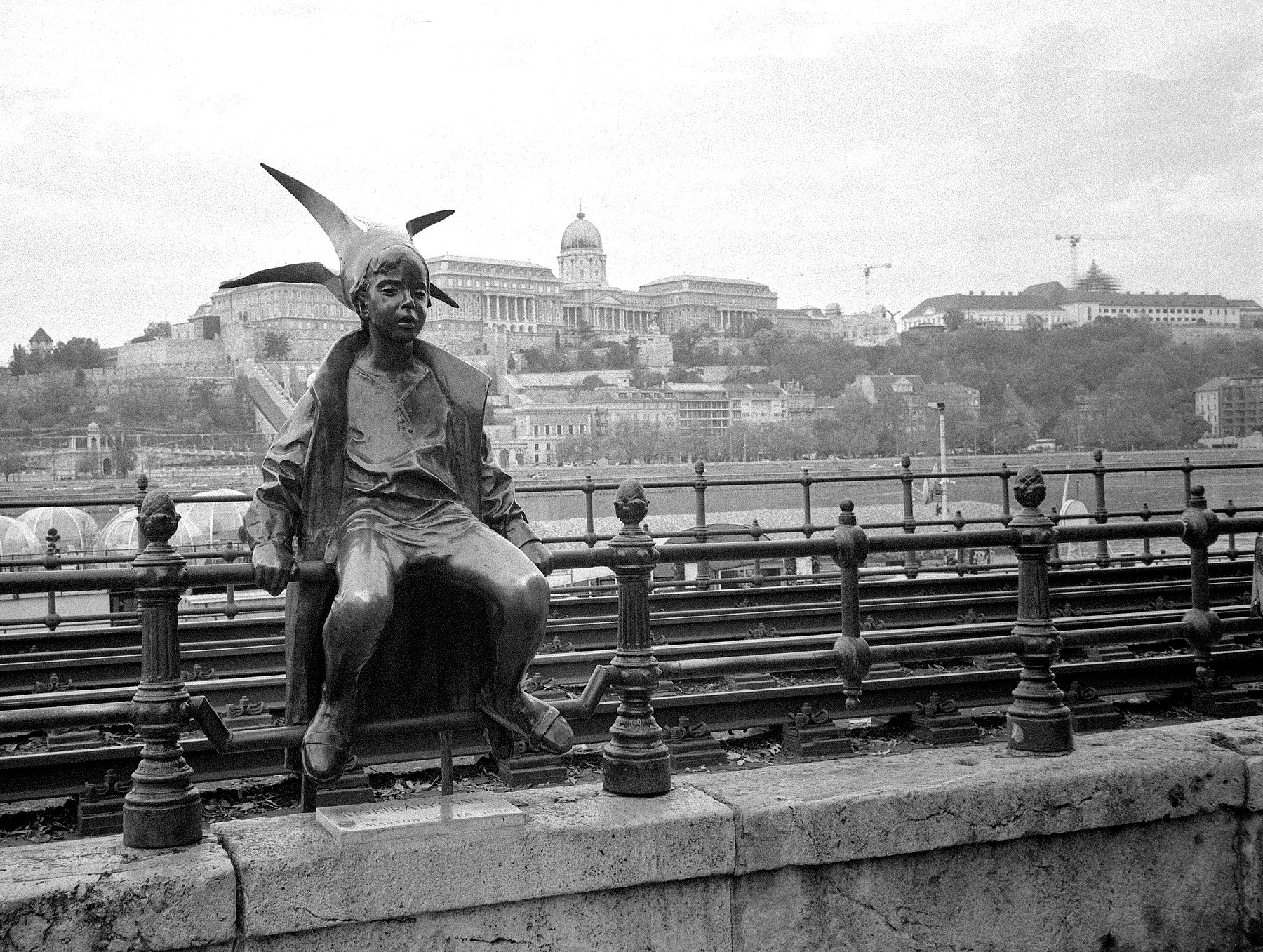
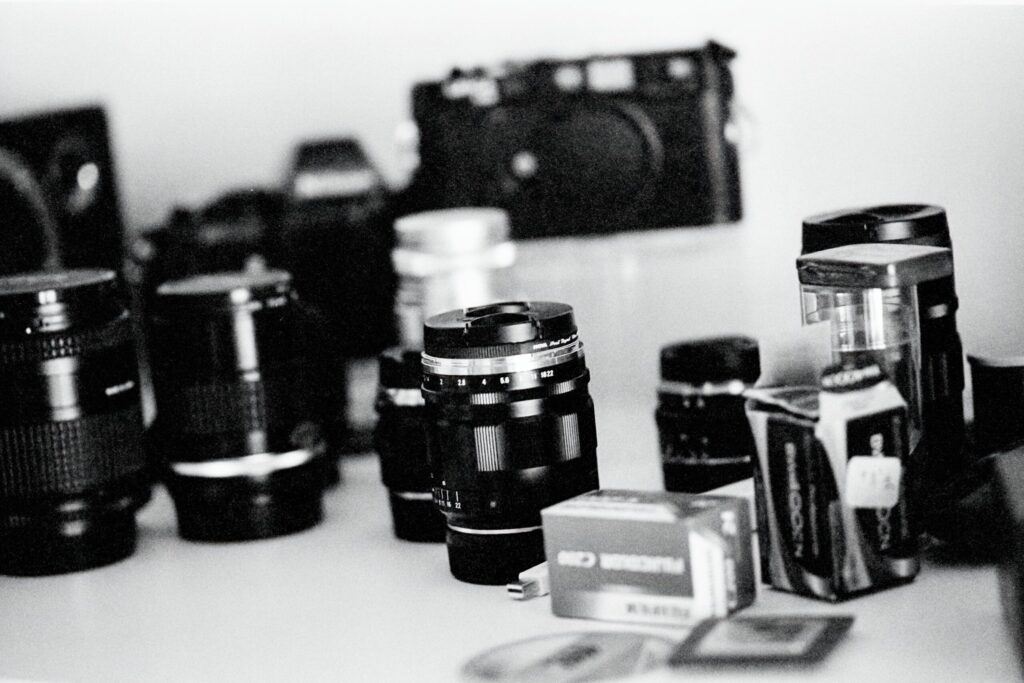
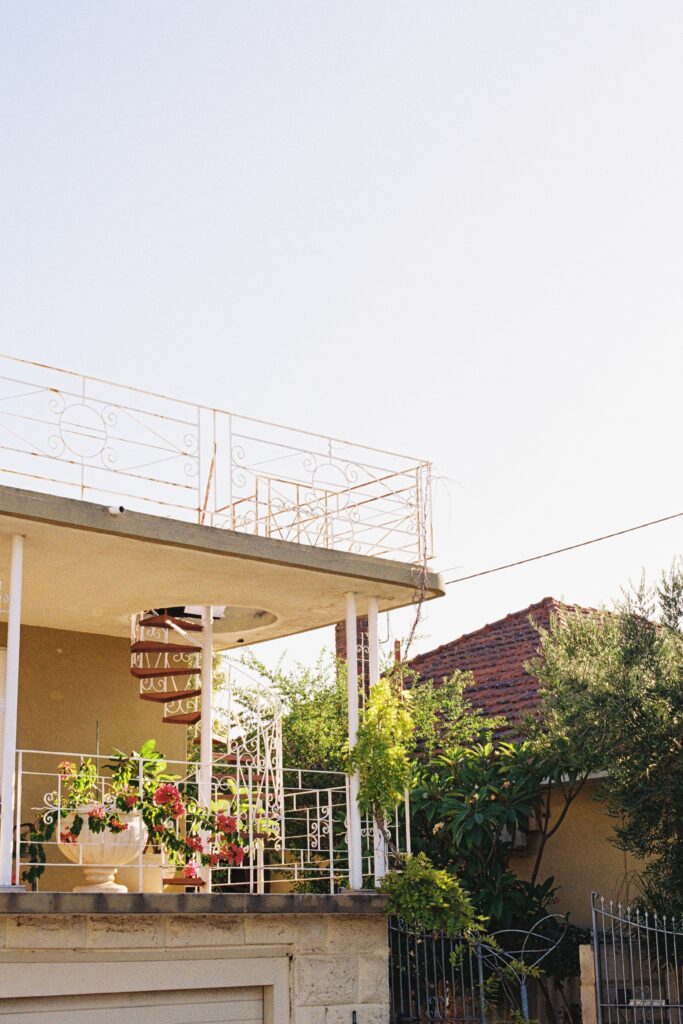
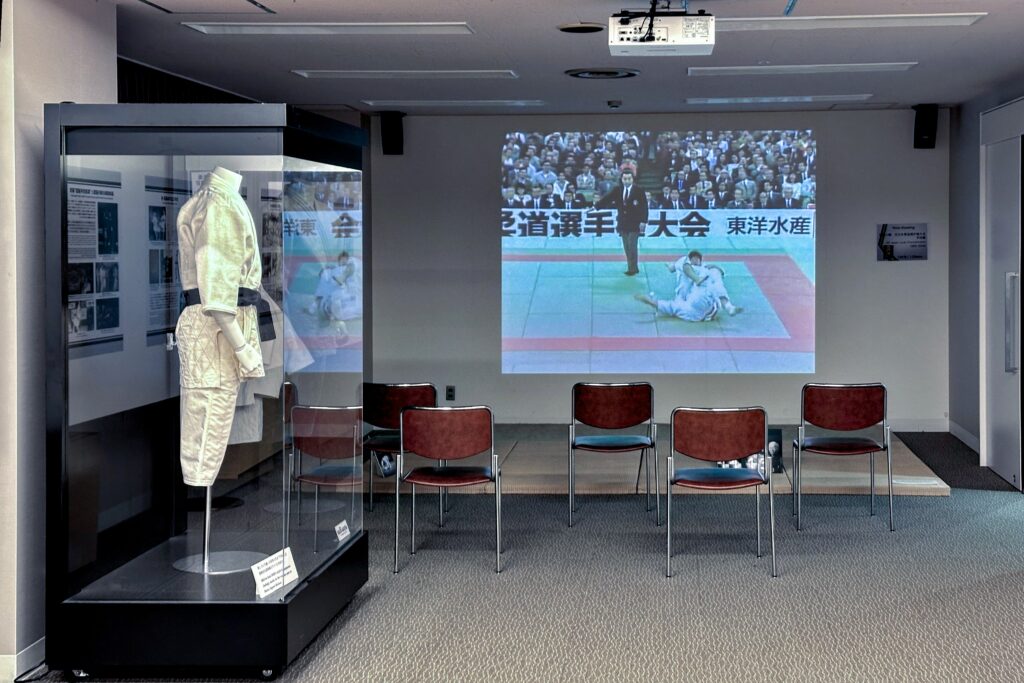
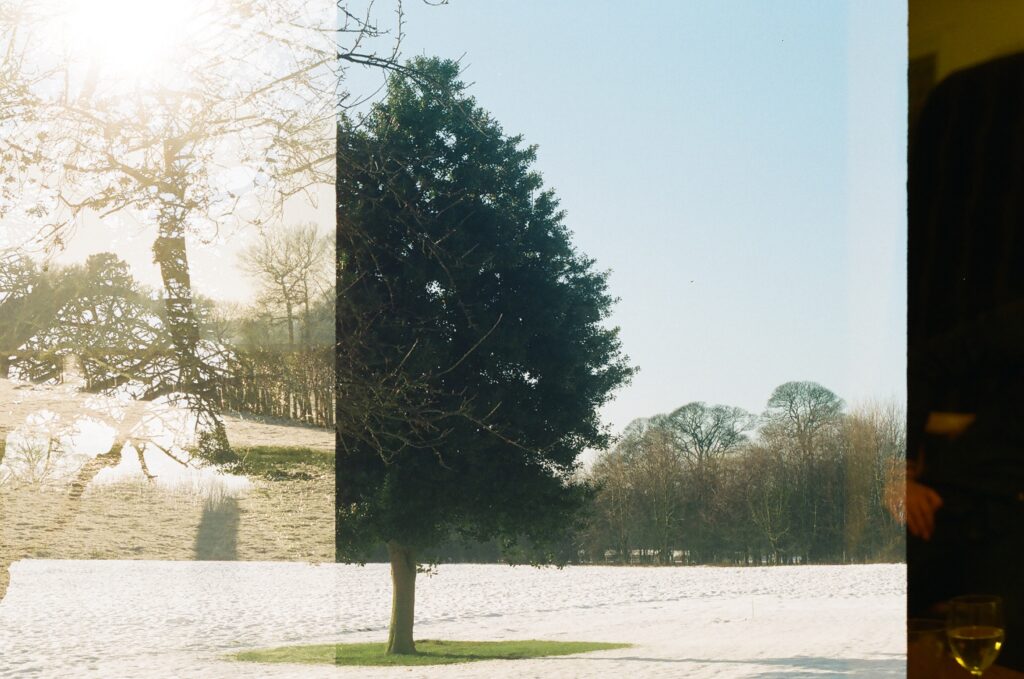




Comments
Alex G. on Do we need to take a step back in film photography?
Comment posted: 26/02/2024
Comment posted: 26/02/2024
P Lambert on Do we need to take a step back in film photography?
Comment posted: 26/02/2024
Prefer colour negative mostly but struggle to get images that look sharp on a 27inch monitor...it isn't the lenses limiting the image as they give sharp results on a modern digital body.. Film has a high cost per image if you buy film by post and mail it to a lab for the downloads.
Comment posted: 26/02/2024
Gary Smith on Do we need to take a step back in film photography?
Comment posted: 26/02/2024
Comment posted: 26/02/2024
Comment posted: 26/02/2024
Roger on Do we need to take a step back in film photography?
Comment posted: 26/02/2024
Comment posted: 26/02/2024
Comment posted: 26/02/2024
Bob Janes on Do we need to take a step back in film photography?
Comment posted: 26/02/2024
For me subject and composition are the root of a good photograph - with that in mind I regard automatic exposure and other automatic functions as the camera taking care of the mundane stuff and leaving me to choose my viewpoint and decide on the right time to trip the shutter.
Of course it helps to understand what the camera is doing and any potential effect on the eventual result, but to my mind the automation serves a useful function of preventing me accidentally spoiling a photograph by neglecting a setting, or missing critical focus while I'm too involved in seeking out the decisive moment.
Comment posted: 26/02/2024
Comment posted: 26/02/2024
Dave Powell on Do we need to take a step back in film photography?
Comment posted: 26/02/2024
Graham Orbell on Do we need to take a step back in film photography?
Comment posted: 26/02/2024
Automatic technology does tend to dumb us down, and to not know how anything works.
Not long ago in my 80s I stopped on a country to help a stranded woman driver with her 18 year old son who had no idea how to change a punctured car wheel and stood watching helplessly
Comment posted: 26/02/2024
Comment posted: 26/02/2024
Geoff Chaplin on Do we need to take a step back in film photography?
Comment posted: 26/02/2024
What does "real photography" mean for me? I think it is where I started - a camera which allows focus, shutter speed and aperture to be set and the rest is up to me, from choice of exposure (sunny 16) to developing and final print. There's satisfaction in enjoying and understanding the process and getting good results. That's one thing I enjoy, but its not the only aspect of photography.
Comment posted: 26/02/2024
Jalan on Do we need to take a step back in film photography?
Comment posted: 26/02/2024
Kary Schumpert on Do we need to take a step back in film photography?
Comment posted: 27/02/2024
Comment posted: 27/02/2024
Ethan on Do we need to take a step back in film photography?
Comment posted: 27/02/2024
Comment posted: 27/02/2024
Robert Gulley on Do we need to take a step back in film photography?
Comment posted: 27/02/2024
Cheers, and thanks again for a thoughtful article!
Comment posted: 27/02/2024
Paul Quellin on Do we need to take a step back in film photography?
Comment posted: 27/02/2024
Comment posted: 27/02/2024
Andrea Taurisano on Do we need to take a step back in film photography?
Comment posted: 02/03/2024
Comment posted: 02/03/2024
Khürt Williams on Do we need to take a step back in film photography?
Comment posted: 03/03/2024
One could argue that the use of modern technologies in film photography does not diminish a photographer’s contribution or amount to cheating, but rather enhances the creative process. Advanced features like autofocus (AF) and automatic exposure (AE) lock do not override the artistic decisions a photographer makes; they simply streamline certain mechanical aspects of photography. The technological assistance allows photographers to focus more on the creative elements, such as composition, timing, and the emotional impact of the image.
The camera’s auto features are tools that still require mastery. Knowing when and how to use AF, AE lock, and other features effectively is part of the skill set of a photographer. The camera does not decide on the subject, the moment to capture, or the perspective—these are all deeply personal and artistic choices that the photographer makes. The end result, the photograph, is a blend of technology and the photographer’s vision, not a product of the camera alone.
Additionally, the process of selecting the film and possibly printing it involves personal experience and technical knowledge. Each of these steps impacts the final image and relies heavily on the photographer’s expertise and creative intention. The photographer is far from cheating the process; instead, they are leveraging available tools to elevate their craft.
Comment posted: 03/03/2024
Jerry Scoby on Do we need to take a step back in film photography?
Comment posted: 05/03/2024
Comment posted: 05/03/2024
Dan Castelli on Do we need to take a step back in film photography?
Comment posted: 26/04/2024
This is how we grow, this is how we push ourselves out of a comfort zone. You touched briefly on physical changes we are all going through or will go through. I'm 72, and sometimes feel like a car that is spending a bit more time in the garage to keep it on the road.
Fortunately, my personal style is not dependent upon GAS. I invested in a Leitz-Minolta CL for its size & weight. My M4-P now places too much strain on my back and an all-day carry now leaves me in pain (even after surgery). I'm currently on the lookout for a CLE because of its automated features. The reality is that the AE of the camera will compensate for the awkward shifting of a cane to get it out of the way to lift the camera to my eye. I can 'point & shoot' and not brother with setting exposure. This process of adapting, compensating and looking for workable solutions is my way of stepping back and doing a deep dive revaluation of my photography. What can I change? What do I need to do to continue working in my style? What do I need to sell off? What do I need to replace? How do others cope and continue?
I hope this makes sense.